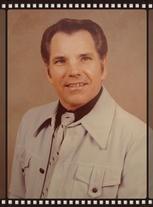"SPILT INK" & Genealogy - DNA Forum
| Forum: Spilt Ink | |||||
|
|||||
|
Ron Smith
 Posts: 58 View Profile |
#38, A Minority of One Posted Friday, May 15, 2020 12:09 PM #38 Minority of One When 7734 Freezes Over
When ya gotta go, ya gotta go, or something like that. The home office notified us that the scope of work on the Green River contract was complete to the clients satisfaction, and that Dad’s crew was needed elsewhere; how would we like a nice warm climate for the winter? It would require a journey of 1,475 miles, leaving us 84 miles from the Mexican border. This would be very much like living in a foreign country where only one out of ten people spoke English. Casper was the first place I attended an integrated school. There were two boys in my class from Black families. They might have been considered a minority, but they spoke English. Here in Benavides, I would be the only boy in my class who spoke English at home. I would be a minority of one. Beginning with the fourth grade, Spanish grammar was taught as well as English, so that would be helpful. I had been in another school all of September and October, and it was the middle of November, so I was behind the rest of my class. Actually, compared to my class, I was about nine years behind!
I was not immediately enamored with my new surroundings upon arrival in Duval County in the very southernmost reaches of the huge state of Texas. I had lived many places in Texas by the ripe old age of nine, and for the most part, my recollections were pleasant and enjoyable. This was different. It would take some “getting used-to”. The countryside was as flat as a ping-pong table and about as plain. As far as the eye could see, the endless vista was Mesquite brush dotted with head-high clumps of prickly pear cactus, or infinite acres of prickly pear, dotted with head-high Mesquite brush. This was cattle country, but where were the cowboys? This picture was in need of some redeeming features, and the rancher, on foot, with a long-reach propane torch burning the thorns off of the cactus clumps so that his cows would find them edible, did not quite fill the bill. Little by little, step by step, I would day by day begin to encounter varied and sundry items of interest that would have an eroding effect upon my negative opinion and attitude toward my latest habitat, but in love with the place? Not for a while, I’d bet.
Most of the merchants in town, and the doctor, druggist, and our landlord all spoke English, but it was their second language. Shorty, our landlord was the owner of a Gulf station on the edge of town, and would get the company’s business. Some of his employees spoke very little English, and sometimes would refuse to do even that. Behind his station, he had two trailer spaces, both vacant, so we had our choice, and took one shaded by the biggest Tamarisk trees I have ever seen. They could have been the Athel variety, which can grow to sixty feet. They formed a canopy over a large area that was not occupied by anything so we took it over for playing with our toy trucks.
When we went to church the first Sunday, we found out where all the native English speakers hung out. The oil companies have their own little communities, or compounds, for their employees. They have one and a half to two dozen houses, a company garage and machine shop, a community building for social events, and a swimming pool. They come to town on weekends for shopping, a movie, and church. Our social life, in a short time became centered in the various groups within the church and they had a full calendar of events and activities to keep the whole family interested and busy. The Pastor and his wife were empty-nesters, and enjoyed entertaining youngsters in their home with games, popcorn, and the world’s best lemonade. They had a “carom-board”, a table-top miniature pool table affair that had pockets, into which you would deposit all your pieces, flattened round spools, by thumping with your strongest finger a main piece causing it to carom off of another at the correct angle to send it into a pocket. It was about the wildest thing likely to happen in your Pastor’s dining room. The lemonade contained no lemons, but ugly, rough-skinned oranges from a tree in the back yard, that were so sour, they could not be eaten, but with a flavor so tasty, you would sacrifice all the sugar in the house for a pitcher of the world’s best “lemonade”. Wes and I made lots of new friends in the church, Dad pitched in on several projects, and Mom enjoyed the association with other moms, and was learning to prepare Mexican dishes to try out on her family. I did not jump onto that band-wagon! It is an acquired taste: pass the ketchup, please!
I told myself that if I could learn to pronounce my teacher’s name, I should be able to learn to speak their language. My teacher was la Señora Yzaguierra. When she didn’t have playground duty during recess, she would stay in and help me with Spanish grammar. Little by little, I was catching up with the rest of the class. Once I was in the room alone when the office called for the teacher on the P.A. system, so I answered and said she had left the room. Thinking they may have paged the wrong room by mistake, they asked whose room it was, and I couldn’t tell them because I had not yet learned to pronounce her name. I finally had to spell it for them. I gradually began to be comfortable around my classmates and make friends, especially Tommy Chapa, and Billy Garza, and his sister, Gloria. I was not as comfortable on the playground, because everyone was speaking Spanish, and I could only guess if they were speaking to me, or talking about me! The boys played with yo-yos, marbles, and tops, but it was more like war than a game. “Marbles” was always “for keeps”. The wooden tops from Mexico had a metal spike for a spindle tip, and they were sharpened and at least an inch long. Some of the guys would replace them with a home-made nail for extra length and weight. The object was to split your opponents top, and some of the guys could do it. I think they could throw a top through a barn door! I carried my notebook and pencils, and drew “mis sombreros, pistolas, y caballos“.
For our Christmas program, I was given the part, and costume, of Santa Clause, because of all the English that had to be spoken. The moms and siblings of classmates were invited to the program. After the program was over, one of the younger brothers of one of our girls kept trying to talk to me, but I could not understand him. I thought I could lose him in the crowd, slip into the cloak room and get out of costume and he would think Santa was on his way back to the North Pole. It didn’t work. He cornered me in the cloak room, but fortunately, his sister had been looking for him and showed up in time to translate. He just wanted me to bring him un camión de bomberos, a fire truck!
Dad had purchased a new sedan just before Christmas. The ’50 models were out and he wanted something heavier, with a more powerful engine to tow the trailer, and he had selected a Packard, in turquoise. It was gorgeous. It was the first car with an automatic transmission he had ever owned; everyone he let try it out said, ”Where’s the clutch?” It also had new-fangled turn-signals that blinked the tail- and parking-lights! It was wide, and plush, and roomy, and he was looking for excuses to get it out on the road. Christmas Day was bright and sunny so Dad wanted to drive down to Harlingen, where he had a cousin, then follow the river past the citrus groves back up the Valley and at Edinburg, turn north toward home. He would, of course, have his camera. It was a pleasant drive with interesting sights other than Mesquite and prickly pear cactus. We saw blooming Poinsettia used as hedge rows and foundation plantings, grapefruit as big as volleyballs, and many varieties of palm trees. By the time we got home, Dad had achieved the “break-in” mileage on his new engine.
We were close enough to school, we could come home for lunch. The morning was cold and overcast, and I jogged home for lunch to keep warm. On the way back to school, I felt something cold striking my face; it was starting to sprinkle rain. Then I discovered white specks in the sky. Could it be snowing in the Valley? By the time I got to school, it was obvious; we were being pelted with tiny sleet crystals. I thought no more of it, having seen lots of frosty white precipitation, though I didn’t expect it in Benavides. By the time school was done for the day, the ground was turning white, something completely new to the other kids. They were going nuts! By morning, the ground was covered, but not very deep, just enough be official
Two boys came to Shorty’s station to sell bottles they had gathered, and they were pulling them in a really nice wagon with fancy wooden side boards. They were not Hispanic, and were very tentative in their approach, so Wes and I went over to get acquainted. By the time summer had us all in cut-offs, no shirts, and bare feet, we had become good friends and combined forces to scour the dirt streets and ditches for redeemable bottles. There was a “truck farm” on the edge of town, about two blocks from our place, and as we passed by, the owner, attracted by the sight of the wagon, called to us and asked if we wanted to peddle tomatoes door to door for him. We told him as soon as we could obtain our parents permission, we would be back to take him up on it. In the meantime, I would be coaching my crew of Gringos how to say, “Una bolsa, veinte centavos”. We dropped off the bottles at Shorty’s and quickly ran our plan past Mom, and her reaction was, “Be sure to save me a couple of bags”. When we got to the farm, the farmer had bagged up our first load, and we were in business. I took the youngest brother to pull the wagon and Wes and the older brother to be his runner, took the other side of the street. The tomatoes sold themselves and we were on our way for another load. The farmer discovered he didn’t have as many ripe tomatoes as he thought,. We would have to wait for the third load to ripen before we hit the streets again.
As we passed the open doors of the Spanish-speaking homes, the aromas emanating through the screens became more and more tantalizing, This was corn-tortilla and refried beans country, and they were helping me acquire a taste that was about on the same pace as Mom’s advancing skill for setting the table with “una comida muy sabrosa“. Nobody was asking for the ketchup these days! But I would be a senior in high school before I acquired a taste for guacamole.
|
||||
|
|||||

